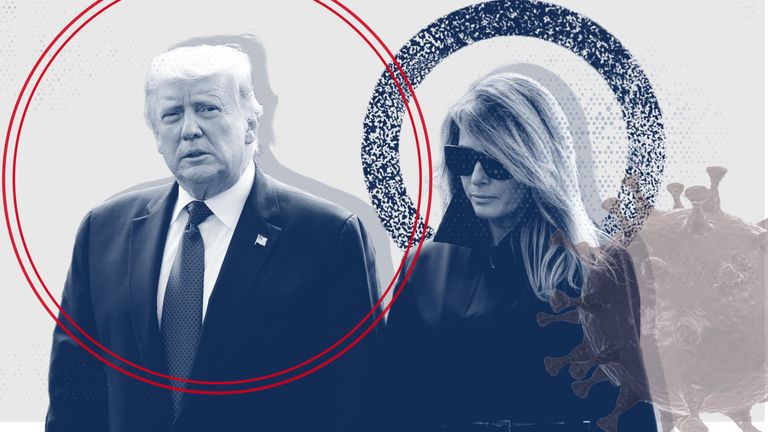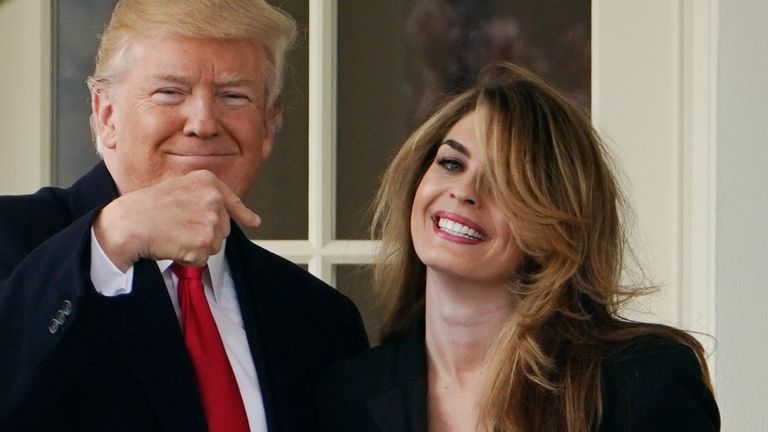Wall Street shares were volatile after US President Donald Trump said he and his wife had tested positive for coronavirus just weeks ahead of the election.
As predicted, all three of America’s main share indexes – the Dow Jones, the S&P 500 and the Nasdaq – were down at the start of trading.
The Dow Jones Industrial Average opened 1.4% lower, the S&P 500 fell 1.24%, while the Nasdaq Composite dropped 2.15% at the opening bell.
Live updates on coronavirus from US, UK and around world
However, the market quickly rallied and pared back earlier falls, with the Dow regaining most of the lost ground and the S&P and Nasdaq also coming off their session lows.
In Europe, stocks also trimmed or even reversed their losses by the close.
The UK’s top flight FTSE 100 Index recovered from the initial shock to end up 0.4% after losing as much as 1.2%.
The German DAX closed 0.3% lower and France’s CAC 40 ended the day up slightly by 0.02%.
However, oil prices fell by 3%, to dip below $40 a barrel.
The financial jitters followed Mr Trump’s announcement on Twitter that he and his wife had tested for coronavirus after Hope Hicks, a senior adviser who recently travelled with the president, had also tested positive.
He said: “We will begin our quarantine and recovery process immediately. We will get through this TOGETHER!”
It sent sent investors scrambling to the perceived safety of the dollar, yen and gold.
Analysts said the news could hurt Mr Trump’s campaigning ability and heighten market volatility at a time when investors
were already skittish after an ill-tempered presidential debate heightened fears of a messy transfer of power.
“It’s one more insecurity heading into a tight, contentious election,” said Oliver Pursche, president of Bronson Meadows Capital Management in Connecticut.
“And given that Trump does not adhere to conventional norms and rules, who knows what he’ll do in terms of postponing the elections.”
:: Subscribe to Divided States on Apple podcasts, Google Podcasts, Spotify, and Spreaker
Meanwhile, data showed US job growth slowed more than expected in September as the recovery from the COVID-19 slump shifts into a lower gear, although the unemployment rate fell to 7.9% from 8.4% in August.
“My initial reaction was, ‘ouch!’ I don’t think it’s going to do anything for the market; it’s not positive enough,” said Patrick Leary, chief market strategist at Incapital in Minneapolis.



